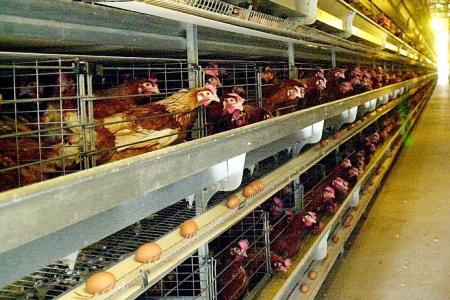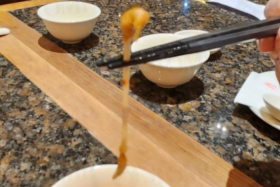Record $26.9m fine for price-fixing poultry suppliers
The 13 suppliers of 90 per cent of fresh chicken products in Singapore also found to have colluded not to compete against one another
After four years of investigations, 13 distributors that supply more than 90 per cent of fresh chicken products here have been fined a record $26.9 million for price fixing and non-compete agreements.
The amount is the highest total financial penalty in a single case, the Competition and Consumer Commission of Singapore (CCCS) said in issuing its infringement decision yesterday.
From 2007 to 2014, they met to discuss prices, and coordinated the amount and timing of increases on at least seven occasions, raising prices by 10 cents to 30 cents a kilogram each time. They also agreed not to compete for customers.
The actions restricted market competition and customer choices, and likely contributed to price increases of certain products, CCCS said.
The distributors import live chickens from Malaysia and slaughter them here for sale to restaurants, supermarkets, hotels, wet market stalls and hawker stalls. The products include whole chickens, chicken parts and processed chicken.
Chicken is the most consumed meat in Singapore, with more than 30kg consumed per person annually, compared to 1kg to 20kg for other meats such as fish, pork, beef and mutton. In 2016, 49 million chickens were slaughtered here.
Given the high consumption and the companies' combined market share, a large number of their customers and end-consumers were affected, CCCS said.
Investigations began in 2014 following a tip-off, and CCCS issued a proposed infringement decision against the 13 suppliers in 2016.
They are: Gold Chic Poultry Supply, Hua Kun Food Industry, Hy-fresh Industries, Kee Song Food Corporation (S) (formerly Kee Song Brothers Poultry Industries), Lee Say Poultry Industrial and its sole proprietor Lee Say Group, Hup Heng Poultry Industries, Leong Hup Food (formerly KBS Distribution) and its holding company ES Food International, Prestige Fortune (S), Ng Ai Food Industries (formerly Ng Ai Muslim Poultry Industries), Sinmah Poultry Processing,Toh Thye San Farm, Tong Huat Poultry Processing Factory and Ban Hong Poultry
CCCS said their total turnover is about half a billion dollars a year.
It conducted further investigations after new evidence came to light, prompting four companies - Tong Huat Group, Sinmah, Kee Song and Hy-fresh - to apply for lenient treatment, CCCS said last December.
Under its Leniency Programme, parties that provide information on their cartel activities can be granted immunity or have their fines cut by up to 100 per cent.
The highest fine of $11,399,041 went to Lee Say Group, which has four companies under it, followed by Tong Huat Group, which was fined $3,580,415, and Kee Song Food Corporation (S), with a $2,689,065 fine.
CCCS said it arrived at the amounts after considering the companies' turnover, the nature, duration and seriousness of the infringement and aggravating and mitigating factors.
The record penalty was imposed given the large size of the industry, the companies' high market share, the seriousness and the duration of the cartel conduct.
The companies have also been directed to provide a written undertaking to refrain from using the Poultry Merchants' Association, of which they are members, or any other industry association as a platform or front for anti-competitive activities.
They had met as early as 2000 to discuss prices at such places as the association's headquarters, though evidence of coordinated anti-competitive efforts dated from 2007.
The whistleblower will get a sum of money under the CCCS' reward scheme for information leading to infringement decisions against cartel members.
"Price fixing and market sharing are considered some of the most harmful types of anti-competitive conduct," said CCCS chief executive Toh Han Li.
"Such conduct is particularly harmful when the products are widely consumed in Singapore, such as in this case."
Get The New Paper on your phone with the free TNP app. Download from the Apple App Store or Google Play Store now



